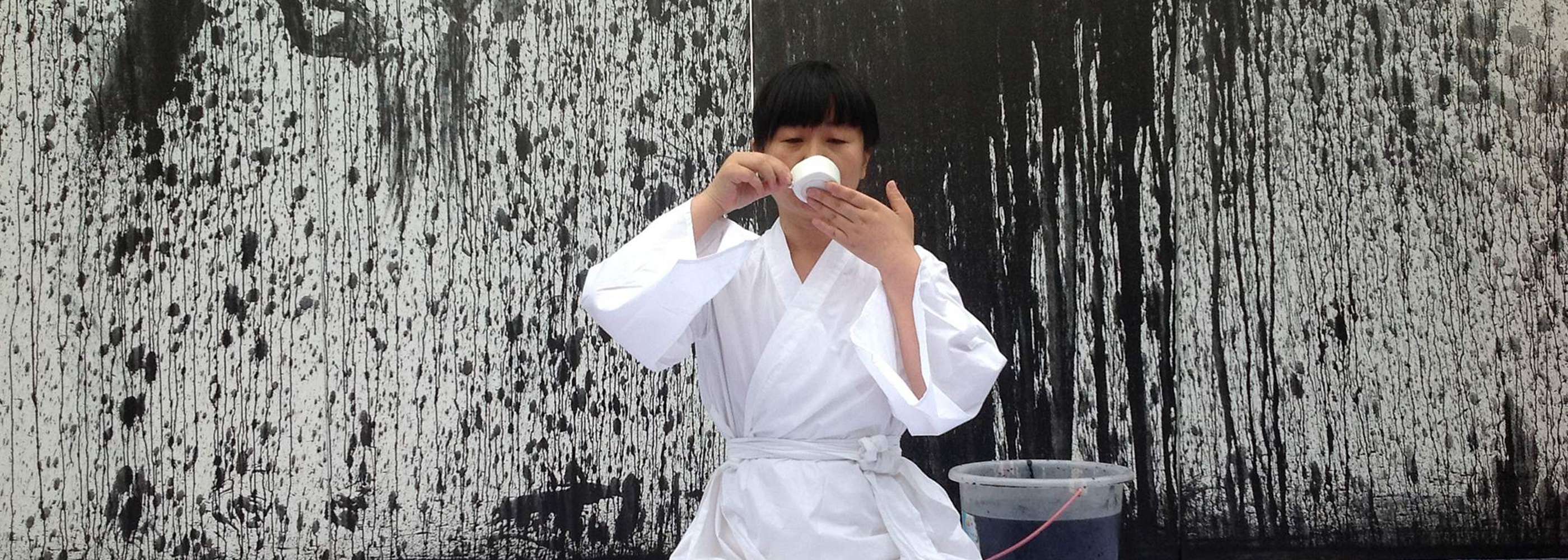

Performance, 2013, "Alien Bodies" Feminist Art Exhibition, Haian, Jiangsu
In 2013, Li Xinmo curated the feminist performance video exhibition The Other Body and performed her piece Tea Ceremony. She used clean white teacups and a teapot to conduct a traditional Chinese tea ceremony. However, instead of pouring clear tea, she poured ink from the teapot. She poured the "black tea" into eight clean white cups and drank them one by one until the teapot was empty.
Tea Ceremony is a profound commentary on tradition, identity, and the subversion of cultural norms through a feminist lens. In this performance, Li Xinmo replaces the tea in a traditional Chinese tea ceremony—an act steeped in history, respect, and cultural significance—with ink, challenging the viewer's perceptions of purity, ritual, and consumption.
In the traditional tea ceremony, the acts of pouring and drinking tea symbolize hospitality, peace, and human connection. By substituting tea with ink, a medium typically associated with writing and expression in Chinese culture, Li transforms the ceremony into a powerful metaphor. The ink not only represents communication but also the heavy burden of cultural expectations, becoming a symbol of the often unspoken and oppressive narratives that women, particularly in patriarchal societies, are expected to internalize.
When Li Xinmo drinks the "black tea" from the clean white cups, the purity of the cups is tainted by the ink, symbolizing how women's identities and roles are often stained by societal expectations and pressures. The ritualistic consumption of the ink can be seen as an act of internalizing these expectations. Yet, by performing this act publicly, Li also exposes and critiques the silent suffering and compliance that women are often expected to endure.
This performance is a deep exploration of the intersection between cultural tradition and feminist critique. It forces the audience to reconsider the rituals and norms that define their own identities and the invisible ink that marks their lives. By turning a revered cultural ceremony on its head, Li Xinmo not only questions the role of tradition in shaping identity but also reclaims the narrative, using the very tools of cultural expression—ink and tea ceremony—to challenge and redefine it.